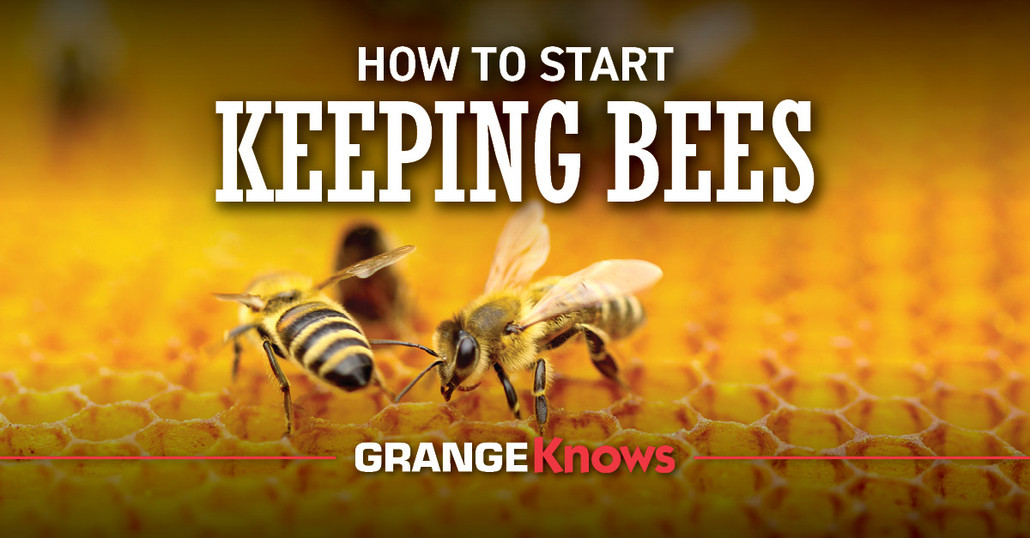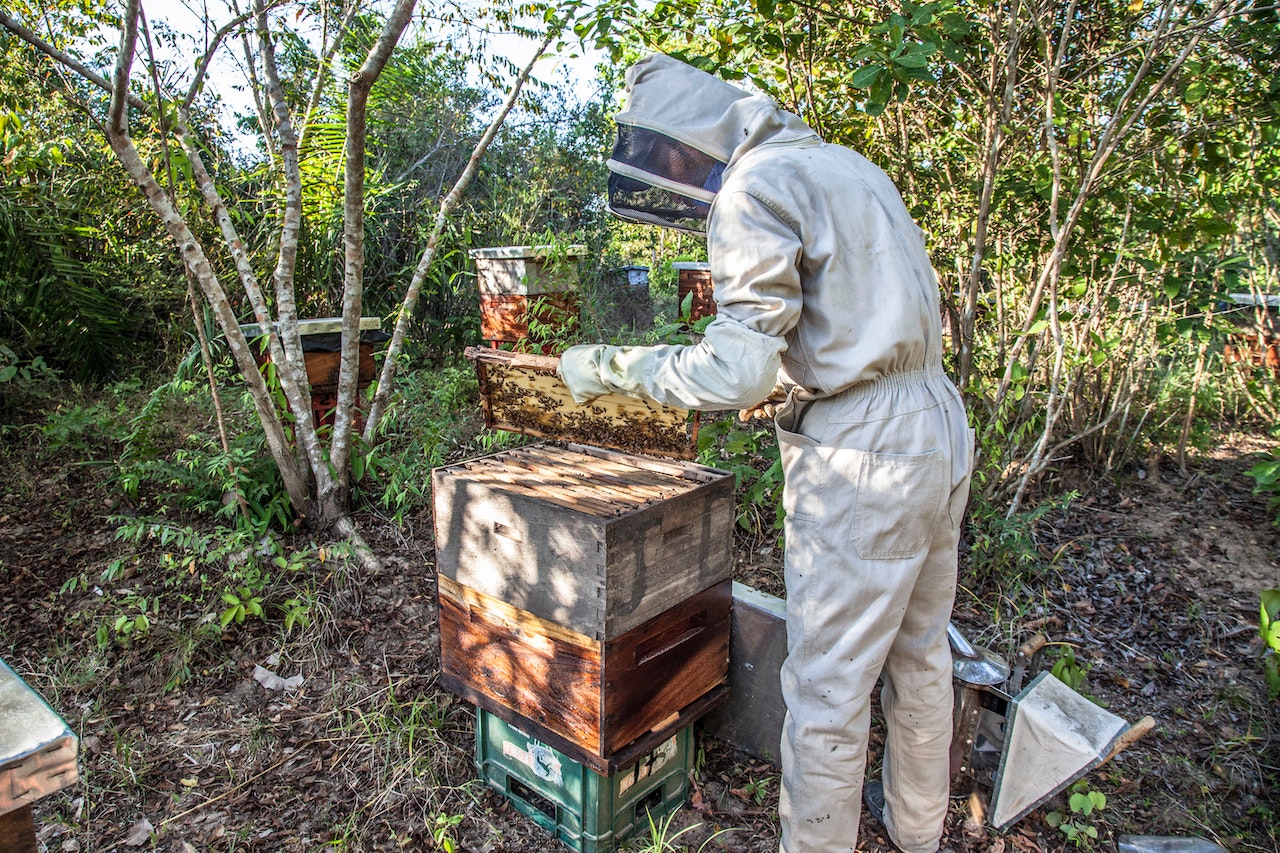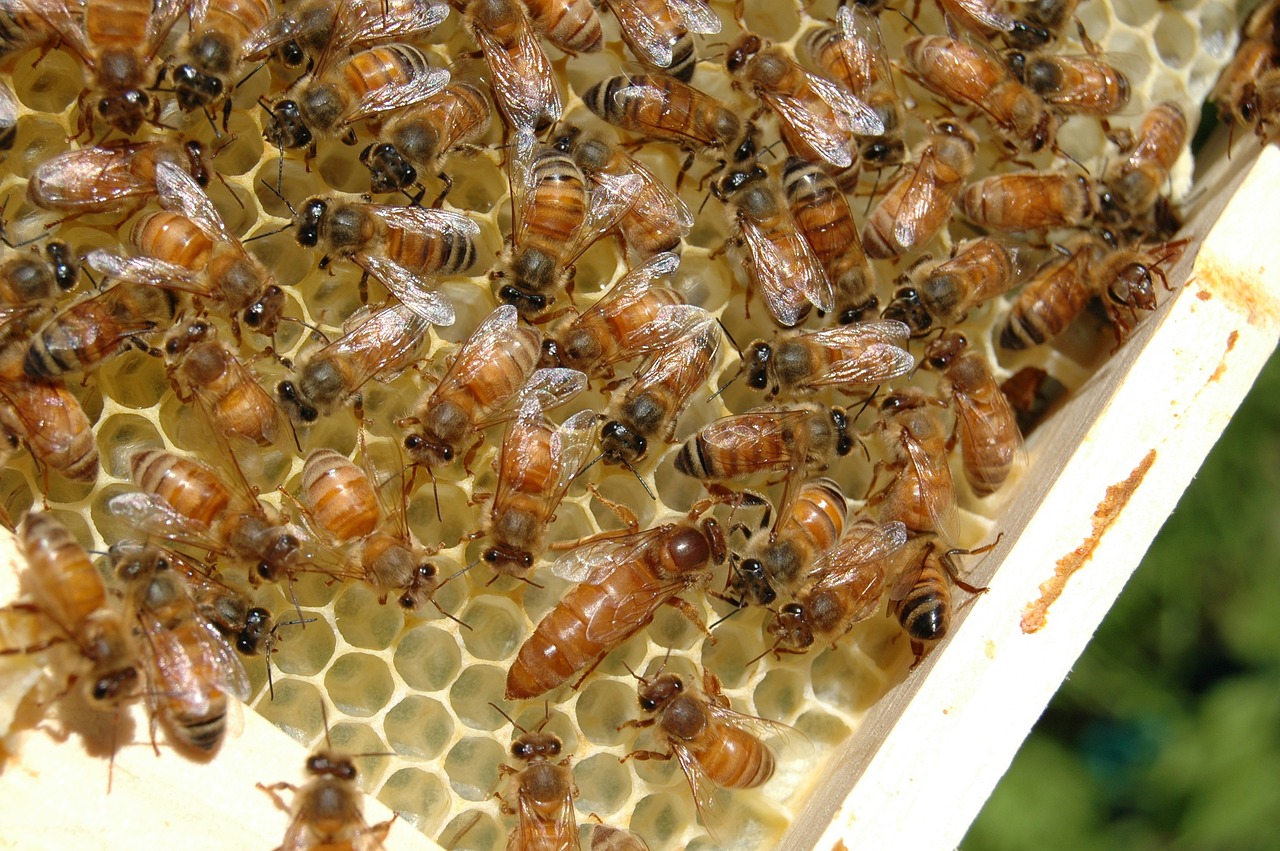
How to Start Keeping Bees
Posted by Grange Co-op on 13th Jun 2023
So, you’ve decided you want to keep bees! Now what? You don’t have to be an expert to start beekeeping, but you do need a basic understanding of the tools and timing involved. Keeping bees as a hobby or for profit can be rewarding. But it does take some work and preparation.
The Basics of Beekeeping

Before ordering your beekeeping supplies, you need to make a plan. Consider the timing of setting up your hives, ordering bees, and how much time you will need to invest in maintaining them. Some decisions you will need to make include:
When to Start — Beekeeping begins in the spring, right after you get your bees. You should spend plenty of time learning as much as possible about beekeeping before setting up your beehives.
Location — You can’t just pick a spot in your backyard and set up your beehives. The bees have needs that you must fill. Consider which area will best provide the following:
- Exposure to the sun
- Shade during the hottest temperatures
- Access to fresh water
- Protection from the wind
- Privacy away from high-traffic areas
Once you choose an area that works, get it prepared. Clean out the brush and level the ground. Try to position your hives to face south and position them off the ground.
Number of Hives — Most experts recommend starting out with two hives. This is a good number to help you learn the fine art of beekeeping. It will be an educational experience learning how much work it takes and what kind of rewards it provides. If you want to expand later, you will have a better working knowledge of what it takes.
Depending on your area, you might get your hives from other beekeepers. Otherwise, you will need to order them online. Grange Co-op has some bee hives and components available at select stores.
Buy Your Beekeeping Supplies — Preparation is an important part of keeping healthy bees. Don’t wait until you need something to purchase it. There are several tools of the trade that you should have ready before you ever set up your hives, including:
- Beekeeping Clothing — Including a full suit, a veil for your face, and a jacket. More experienced beekeepers forego gloves for better manipulation of the hive, but they are highly recommended for beginners.
- A Standard Smoker — Smoke calms the bees and prevents stings by masking your pheromones. A smoker is essential for managing your bee hives.
- Hive Tool — The hive tool helps you loosen the frames and boxes in the hive. Purchase at least one to get started.
- Bee Brush — A standard bee brush gently moves bees from areas you want to inspect.
- Frame Grips — These metal pincher devices aid in removing the frames from the hive with one hand.
- Feed for Bees — You will need to feed your bees when establishing a new hive. Afterward, feed bees during early spring and in times of need. Bee feed is used to provide nutrition when no pollen or nectar is available. Use liquid feed in place of sugar water or brood patties to stimulate and feed your hives.
- Honey Extractor — You don’t have to have a honey extractor, but it makes collecting honey much faster and easier.
You can also buy a backyard beekeeping kit that includes the basic needs of new beekeepers.

Buy Your Bees — You can order a package of bees from local beekeepers or beekeeping associations. A typical bee package will contain 3 lbs. or about 10,000 bees, including a caged queen and a sugar pack for feeding while in transit. You should order them in winter to receive them by the following spring. Otherwise, the bees might sell out.
A nucleus colony, or nuc, is a small box that contains frames of comb from an established colony. They include bees at various stages of development. It is essentially a tool for kick-starting a new hive. Nucs are also easier to introduce into a hive, a benefit for many new beekeepers.
Observe Your Hives — Initially, inspect the hives about once a week. See that they are clean and free of bee poop and ants. Other parasites to watch for, besides ants, include Varroa mites and small hive beetles. Some animals also pose a risk to bee hives, including mice, skunks, and bears.
Learn early on how to recognize if your hive has a healthy queen and when there are signs of parasites. Open the hives on warm days to check for larvae and eggs. A healthy hive will contain numerous larvae in various stages of development.
Some Reasons Beekeeping Is So Important
People often take an interest in beekeeping because of honey’s great taste and health benefits. It contains small amounts of iron, zinc, and potassium. While honey contains low levels of these nutrients, many people still consider it a health food. The golden nectar contains antioxidants that aid in reducing inflammation that can lead to serious health issues. It also works as a cough suppressant in children aged 1 year and older.
On a commercial level, honey accounts for more than $3 million annually. But it isn’t just their honey that helps keep people healthy. Bees are beneficial insects that pollinate $15 billion worth of crops in the US every year. Bees are truly amazing insects that play a more significant role in our lives than most people realize. That’s just another reason that keeping bees in your backyard is a satisfying hobby.
Get Started with the Beekeeping Basics at Grange Co-op
Grange Co-op has a wide range of beekeeping supplies to get you started. Shop for hives and components, basic tools, and beekeeping clothing online or at your local Grange Co-op. Our team of experts is here to answer your questions to help you have the best beekeeping experience possible. Contact us to learn more about any of our beekeeping products.
